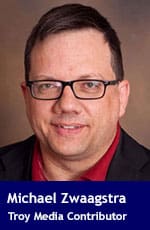Would you let a doctor skip anatomy? Then why is Manitoba letting teachers skip subject expertise?

For interview requests, click here
Imagine that a young man we’ll call Jerry wants to become a high school physics teacher. So, Jerry applies to a Bachelor of Education program at a Manitoba university.
On his application, Jerry states that he recently completed a Bachelor of Biblical Studies degree focusing on pastoral ministry from Bob Jones University, a private Christian university in Greenville, South Carolina.
Because he focused on pastoral ministry, Jerry didn’t take any physics courses. Jerry didn’t study anything taught in Manitoba schools. However, Jerry did take plenty of courses in ministry outreach, expository preaching and pastoral theology.
Yet, common sense dictates that Jerry undergo some serious academic upgrading before becoming a teacher. Manitoba teachers need at least some expertise in the subjects they teach.
At least, that used to be the case. Thanks to regulatory changes made last fall by the Manitoba government, Jerry can now apply directly to a Bachelor of Education (B.Ed.) program and become a high school physics teacher in just two years.
 Manitoba just made it easier to become a teacher – by lowering standards. |
| Recommended |
| Manitoba NDP taking a dangerous gamble with teacher training
|
| Manitoba school cell phone ban makes sense
|
| My tips for building a strong relationship with your child’s teacher
|
Previously, Manitoba required prospective teachers to complete a prescribed number of courses in “teachable” subjects, such as math, science, English and history. This ensured that teachers had a reasonable amount of subject-matter expertise. After all, why would someone be allowed to teach physics if they’ve never taken a single university course in that subject?
However, under the new teacher certification regulations, prospective teachers need only complete a bachelor’s degree from an accredited post-secondary institution to be admitted into a B.Ed. program. It no longer matters whether their academic training has anything to do with what is taught in Manitoba schools.
And yes, for anyone wondering, Bob Jones University is accredited by the Southern Association of Colleges and Schools. Its degrees are just as valid as those from the University of Manitoba.
The real issue here is not about Bob Jones University itself but the broader implications of allowing unrelated degrees to serve as qualifications for teaching. Someone with only a gender studies degree from the University of Winnipeg shouldn’t be able to jump straight into a B.Ed. program. Nor does it make sense to accept a film studies degree from the University of Manitoba as sufficient preparation for admission to a B.Ed. program.
Subject area requirements matter because we expect teachers to know the subjects they teach. Math teachers should have expertise in math, physics teachers should be competent in physics, and history teachers should be knowledgeable in history.
In addition, because early- and middle-year teachers teach a wide variety of subjects, it’s vital that they have a breadth of knowledge. That’s why the previous regulations required applicants to these B.Ed. streams to complete a prescribed number of university courses in math, science, English and history as part of their undergraduate degree.
Instead of addressing the teacher shortage through strategic recruitment and retention efforts, Manitoba is choosing to lower education standards—a short-sighted approach that risks long-term harm to students. No one would suggest that prospective engineers not be required to take math courses or that future doctors be allowed to skip anatomy. If professional standards matter, we need to keep subject prerequisites in place for teachers.
NDP politicians might think that Jerry’s degree in pastoral ministry from Bob Jones University is sufficient training to become a teacher. Common sense tells us otherwise.
Michael Zwaagstra is a public high school teacher and a senior fellow with the Frontier Centre for Public Policy.
Explore more on Manitoba education, Manitoba Politics, Kinew government
Troy Media is dedicated to empowering Canadian community news outlets by providing independent, insightful analysis and commentary. Our mission is to support local media in fostering an informed and engaged public by delivering reliable content that strengthens community connections, enriches national conversations, and helps Canadians better understand one another.

